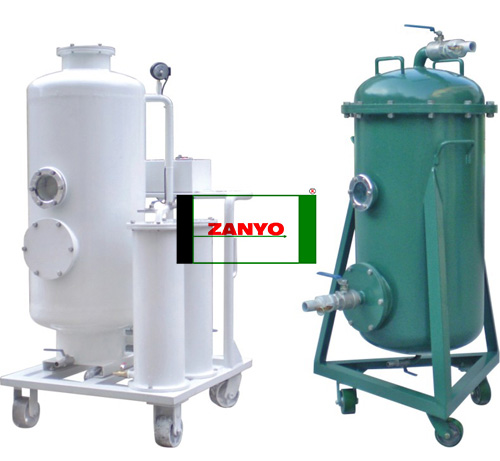Changing Maintenance with the Transformer Oil Regeneration Process
Why Regenerated Transformer Oil Is Necessary for Reliable Power Systems
The vital role of regenerated transformer oil in ensuring the reliability of power systems can not be overemphasized. By restoring the oil's integral chemical and physical properties, the regeneration procedure considerably boosts its dielectric strength and thermal performance.
Relevance of Transformer Oil
Transformer oil plays an essential function in the efficient operation of electrical transformers. By offering thermal conductivity, transformer oil dissipates heat generated throughout electric operation, which is essential for keeping ideal operating temperatures and lengthening the life expectancy of the devices.
Furthermore, transformer oil serves as an obstacle against dampness and air, which can bring about oxidation and deterioration of transformer products. The presence of pollutants in the oil can substantially harm its protecting residential properties, causing functional inefficiencies and possible tools failing. Routine tracking and maintenance of transformer oil are for that reason vital to ensuring the continued effectiveness of transformers.
The top quality and structure of transformer oil are paramount, as they straight affect the integrity and efficiency of the electric systems in which they operate. Understanding the importance of transformer oil is necessary for energies and markets reliant on robust power framework, stressing the need for efficient monitoring and regeneration procedures to preserve oil stability gradually.
Advantages of Regeneration Process

In addition, the regeneration procedure reduces the destruction of oil, which can lead to enhanced oxidation and acid development. This not just boosts the dependability of the oil but likewise lowers the danger of transformer failings as a result of insulation break down. The enhanced high quality of regrowed oil allows transformers to operate at ideal degrees, eventually bring about improved energy efficiency and reduced functional costs.
Furthermore, the regeneration procedure adds to keeping the overall health of the power system. Transformers can run much longer without the need for oil substitute, therefore decreasing downtime and upkeep efforts. In recap, the regrowth process offers significant advantages by enhancing the longevity and performance of transformer oil, guaranteeing that power systems operate reliably and effectively over time.
Ecological Influence and Sustainability
The regrowth process of transformer oil dramatically eases environmental concerns linked with oil disposal and waste administration. Typical disposal approaches for made use of transformer oil position substantial dangers, consisting of soil contamination and water contamination. By regrowing oil, these risks are substantially decreased, as the process recycles existing resources as opposed to contributing to lose buildup.
Furthermore, regenerated transformer link oil can be reused in numerous applications, which advertises a circular economic climate. This not only lessens the requirement for virgin oil extraction-- a procedure that can be eco harmful-- yet also preserves natural sources. The regrowth process itself uses sophisticated filtering and filtration methods that get rid of unsafe impurities, ensuring that the end product meets or exceeds market requirements for efficiency and safety and security.

Enhancing Transformer Efficiency
Significant enhancements in transformer performance can be attained with the use of regenerated transformer oil. This oil, created with advanced purification procedures, significantly improves the electric insulation buildings of transformers. By removing impurities and impurities that usually compromise efficiency, regrowed oil ensures premium dielectric toughness, lowering the threat of electric failings.
Additionally, regenerated transformer oil shows improved thermal conductivity, which helps with efficient warmth dissipation. This characteristic is crucial for maintaining optimum operating temperatures, thus prolonging the life-span of transformers and reducing the probability of getting too hot - Transformer Oil Regeneration Plant. Improved thermal management additionally Visit This Link contributes to the general reliability of power systems
Furthermore, the chemical security of restored oil protects against the formation of destructive acids and sludge, which can detrimentally impact transformer parts. By maintaining a cleaner inner atmosphere, this oil lessens maintenance demands and prolongs solution periods.
Cost-Effectiveness and Performance
In terms of cost-effectiveness and efficiency, regenerated transformer oil offers an engaging choice to standard oils. The regrowth process not just removes pollutants yet additionally recovers the oil's initial residential or commercial properties, extending its practical life expectancy. This long life equates into lowered regularity of oil substitute, thus lowering functional prices gradually.
Furthermore, using restored oil can substantially reduce energy losses related to ineffective shielding fluids. Its premium dielectric residential properties ensure optimum efficiency, enhancing the dependability of power systems. As a result, organizations gain from lower upkeep prices and decreased downtime, fostering a much more effective functional environment.

Conclusion
Finally, the regeneration of transformer oil plays an essential duty in ensuring the reliability and performance of power systems. By bring back the crucial chemical and physical properties of the oil, this process improves dielectric stamina and thermal conductivity, eventually lowering the threat of insulation failure. The ecological advantages associated with recycling resources contribute to sustainability efforts, while cost-effectiveness and enhanced efficiency underscore the necessity of making use of regenerated transformer oil in modern electric framework.
Transformer oil plays a crucial duty in the effective procedure of electric transformers. Regular surveillance and upkeep of transformer oil are therefore essential to making certain the continued performance of transformers.
The regeneration process of transformer oil substantially alleviates ecological problems associated with oil disposal and waste monitoring. By lengthening the lifecycle of transformer oil, the power and sources commonly eaten in creating new oil are considerably decreased.Considerable enhancements in transformer performance can be achieved through the use of regenerated transformer oil.